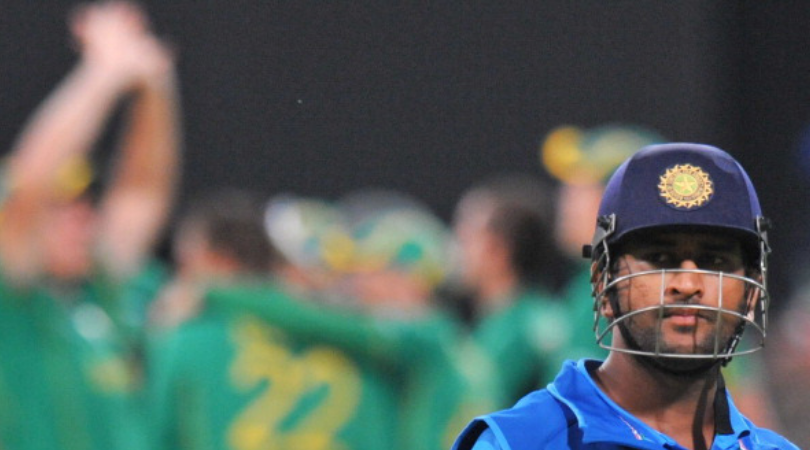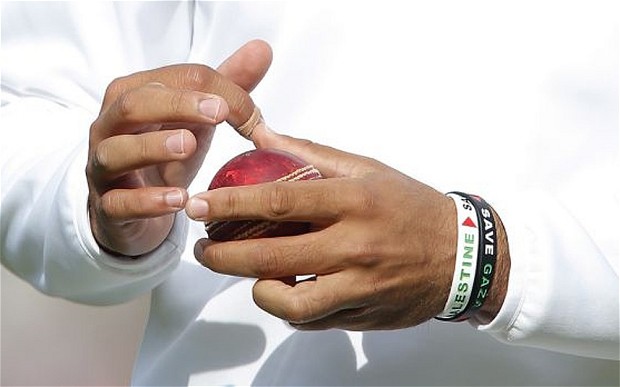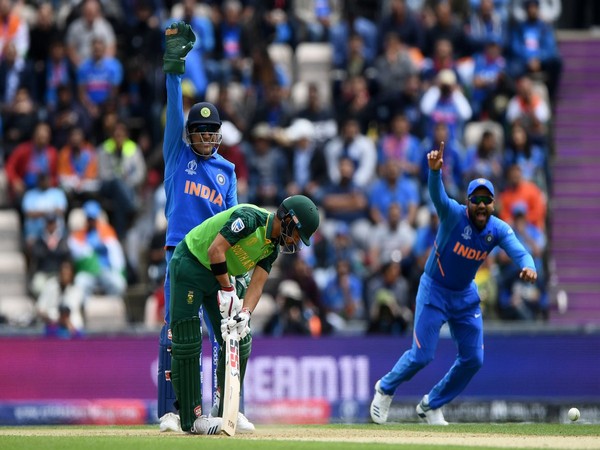Cricket
#IndiaWithDhoni: The grand narrative of portraying India as a wronged victim

The debate around MS Dhoni’s wicket-keeping gloves bearing Army insignia is in many ways symptomatic of the political crisis that has been plaguing us for the last few years. With prime time anchors and social media warriors frothing and fuming in righteous indignation over ICC’s decision to disallow Dhoni from wearing those gloves, the issue has once again highlighted the common problems that have come to define our political narrative of late — a sense of majoritarian victimhood, unthinking jingoism, obfuscation of facts and illiberal shutting down of dissent.
The larger media narrative on the issue has so far tried to portray Dhoni, and of course India, to be at the receiving end of ICC’s ‘wrath’.
Their reasoning goes: Since the former Indian skipper, who is also a honourary lieutenant colonel, had decided to sport the army’s ‘Balidan Badge’ out of respect for martyrs and for his own motherland, the ICC decision is a grave insult to Dhoni’s patriotism and India’s image. Here is a foreign body, they argue, that is making great efforts to belittle India at the world stage.
The problem with this line of thinking, however, is it does not follow the basic tenets of value judgement, which in this case requires taking into consideration the ICC’s rules and code of conduct. ICC regulations do not permit players to display on their jerseys or equipment messages that relate to political, religious or racial activities or causes during an international match.
And the issue with Dhoni’s gloves does not lack precedent — in 2014, England all-rounder Moeen Ali was banned from wearing “Save Gaza” and “Free Palestine” wristbands during a Test series against India.
 Moeen Ali wore a band with the words 'Save Gaza' during the third Test against India at Southampton in 2014.
Moeen Ali wore a band with the words 'Save Gaza' during the third Test against India at Southampton in 2014. Thus, criticisms of the ICC decision in Dhoni’s case, despite there being no dearth of clarity on the rules and lack of precedent, clearly suggests a deliberate obfuscation of facts to suit a political grand narrative.
A major conspiracy hatched by a foreign power (often Pakistan) to challenge India’s integrity and a deep state comprising left liberals, academics and intellectuals working to secretly assist this foreign power — how many times have we heard this narrative leading up to the general elections this time? Polls might well be over, but the grip manufactured by this grand narrative continues to be unrelenting.
In his post-truth age, it is facts that need to be tailored to fit the narrative and not the other way round. And in this scheme of things, well-meaning questions about teething issues of the day get buried under the facade of patriotism. Jingoism and cricket always went hand in hand. What we have now is performative patriotism and conscious image-building that suit the larger political narrative — patriotism is the buzzword that helps market every product now, from cement to cricketers.
The larger purpose of this political project, of course, is to stop inconvenient questions from being asked and prevent those in power from being accountable — all of this can be achieved by using patriotism as an unquestioning final word to shut down debates. It helps create convenient labels such as the patriot and the anti-national.
In the long run, it helps encourage the illiberal shutting down of dissent and slow shift towards a totalitarian practice, be it on the cricket field or elsewhere. So much so that it requires only a tweet by Dhoni to get Harsha Bhogle suspended because he, being the seasoned commentator, had committed the grave offence of being impartial and not praising India enough on air. It allows Kohli to say, with blatant disregard for fans of the game who make the sport what it is today, that if you like foreign cricketers more, then you should not stay in India.
Throughout the day after ICC’s decision came to be known, #IndiaWithDhoni was trending on Twitter. However, once again in this case, the grand narrative of portraying India as a wronged victim, which has to silently suffer at the hand of the ICC, is deeply flawed.
 ICC says regulations do not permit the India wicketkeeper to sport such insignia.
ICC says regulations do not permit the India wicketkeeper to sport such insignia. India at the moment is a global powerhouse of the sport; in the cricketing arena, it has often been accused of being the big brother that arm-twists the ICC to take decisions that disproportionately favour only India. In fact, it was one of the staunchest supporters of the ‘Big Three’ structure that helped India walk away with the lion’s share of the revenue from the game. Therefore, portraying India as a tiny, powerless nation on the global cricketing map is the deliberate playing out of the narrative of majoritarian victimhood.
All these issues help raise a very pertinent question: Why do you, in the first place, need to bring the Army and its symbols onto the cricket field? One’s patriotism for the nation can be absolute, without an effort of militarizing the sport and invoking the army into all spheres of our life. Try telling that to wiseacres who want army tanks to be installed on university campuses to instil a sense of patriotism among students. (The views and opinions expressed in this article are those of the author and do not necessarily reflect that of the organisation.)





